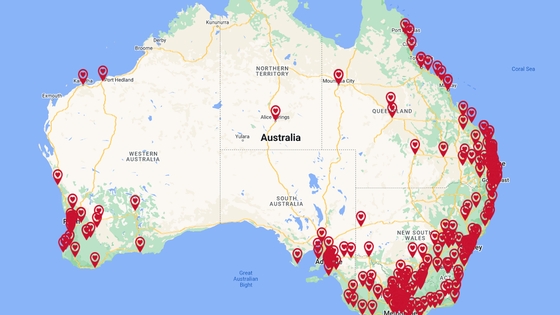
Nutrition support services
Finding support for your nutrition
A healthy eating pattern is an important part of maintaining your heart health, but sometimes it's hard to know what changes you need to make. For personalised nutrition advice tailored to your individual needs, the Heart Foundation recommends seeing an Accredited Practising Dietitian (APD).
Accredited Practising Dietitians are qualified professionals who have met rigorous training standards, including medical nutrition therapy, and are recognised experts in providing evidence-based nutrition and dietary advice.
How to access nutrition support
While you don’t need a referral to see a dietitian, it’s a good idea to discuss with your general practitioner (GP) first, particularly if you’re managing a heart condition. If you are eligible, your GP may refer you to see an Accredited Practising Dietitian (ADP) under a care plan, entitling you to a Medicare rebate.
If you have private health insurance, check with your provider to see if visits to APDs are covered by your health insurance policy.
If you're unsure how to get started, ask your general practitioner (GP) about whether a dietitian could help you, and discuss referral options.
What to expect when seeing a dietitian
When you meet with a dietitian, your first appointment will focus on understanding your medical history and current lifestyle. You may discuss:
- Your heart health goals (e.g., lowering cholesterol, controlling blood pressure)
- Your current eating patterns, preferences, and any challenges
- Other lifestyle habits (e.g., activity levels, stress)
Your dietitian will provide personalised advice and might recommend a healthy eating plan tailored to your needs. Your dietitian may also ask you to track the food you eat with a food diary, or complete nutrition questionnaires to help monitor your progress and adjust your plan as needed.
Questions to ask your dietitian
Make the most of your dietitian visit by asking questions related to your heart health. Consider asking:
- What am I missing from my diet?
- What foods should I prioritise or limit to lower my cholesterol and blood pressure?
- What portion sizes are appropriate for me to maintain a healthy weight?
- How can I plan my meals to balance my blood glucose levels and protect my heart?
- When should I expect to see changes in my blood results, from eating heart healthy?
- What are good ways to reduce sodium in my diet?
- How can I incorporate more heart-healthy fats, like omega-3s, into my meals?
Make sure you’re comfortable with your nutrition goals and plan and clarify any questions you have before leaving the appointment.
For more information
To learn more about how dietitians can help you, or to find an Accredited Practising Dietitian, visit the Dietitians Australia website.
Healthy eating tools and resources
We're here to help! We have plenty of resources to help you follow a heart-healthy eating pattern.
- Build your skills and confidence in the kitchen with our tips and tools for planning, shopping, and cooking healthy meals!
- Explore our full range of recipes for delicious, budget-friendly and easy to prepare heart-healthy meals you can make at home.
- Discover our collection of free recipe e-books, from ‘Family recipes on a budget’ to '5 Ingredient Recipes' plus many more.
- Get four weeks of easy-to-follow dinner recipes, shopping lists, tips and other helpful information to make healthy eating easy with our free Heart-Healthy Dinner Plan.
Looking for more information? Explore our resources on healthy eating and recent articles.
You might also be interested in...

Nutrition and living with heart disease
Information on healthy eating, with a focus on key highlights for people who have heart diseases. This includes people who have had a heart attack, along with heart disease risk factors (high cholesterol, high blood pressure).

How to follow a heart healthy eating pattern
Follow these easy tips to boost your heart health and embrace a heart-healthy eating pattern.

Find a cardiac rehabilitation program near you
Cardiac rehabilitation helps your recovery after a heart procedure or the diagnosis of a heart condition. It also helps lower your chances of having heart problems in the future.
Last updated16 January 2025